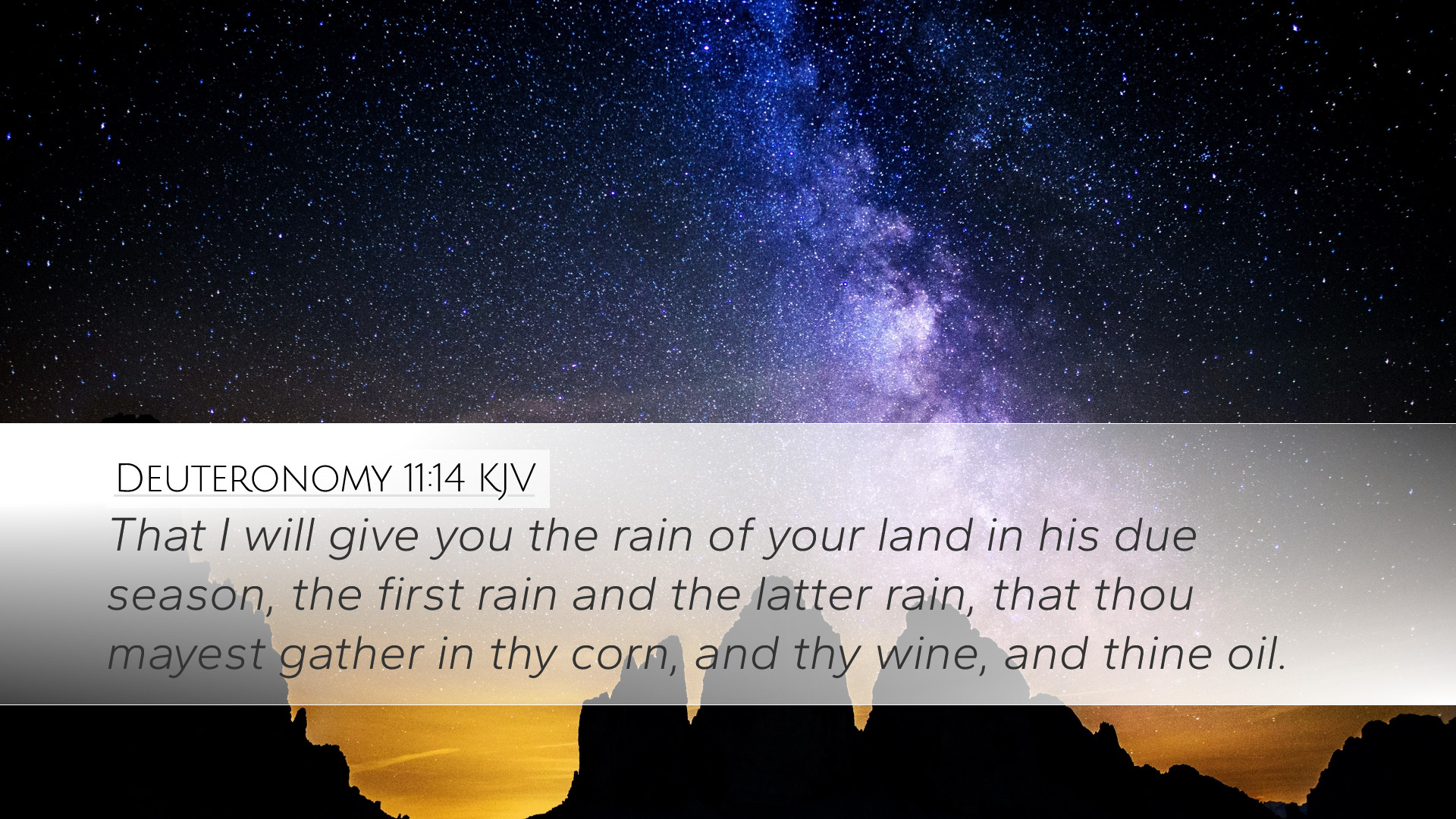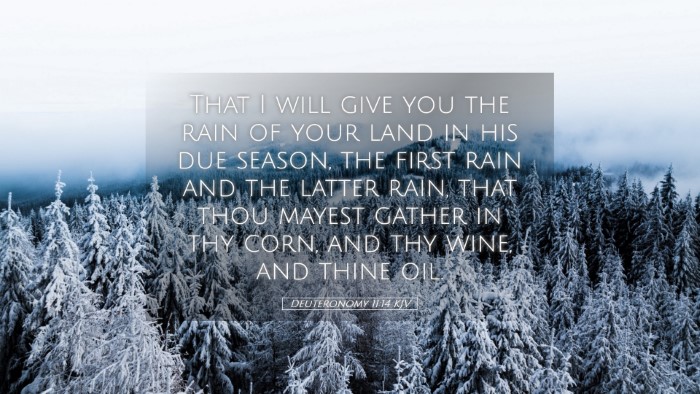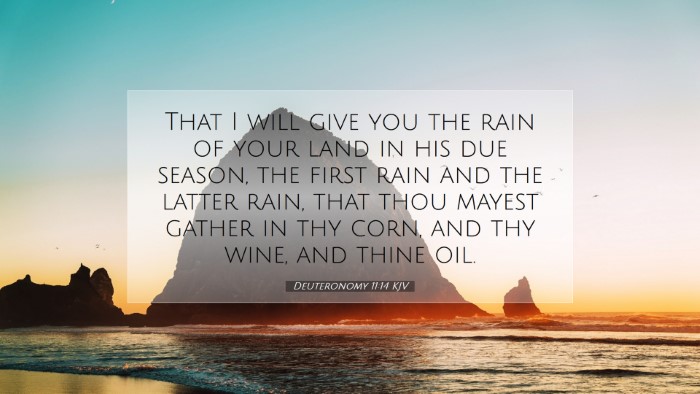Commentary on Deuteronomy 11:14
Verse: Deuteronomy 11:14 - "That I will give you the rain of your land in his due season, the first rain and the latter rain, that thou mayest gather in thy corn, and thy wine, and thine oil."
Introduction
The promised blessing of rain in Deuteronomy 11:14 encapsulates God's covenant loyalty to Israel and His provision for their needs. This verse emphasizes the importance of obedience to God's commands and the resultant blessings that follow. In this commentary, we will explore insights drawn from public domain sources, including Matthew Henry, Albert Barnes, and Adam Clarke, delving into the theological implications, historical context, and practical applications of this significant scripture.
Contextual Overview
This verse falls within a larger discourse in Deuteronomy where Moses is addressing the Israelites about their relationship with God and the land of promise. The surrounding passages detail the blessings of obedience and the curses of disobedience (Deuteronomy 11:1-32). Understanding this context is crucial for interpreting the import and weight of God's promises made to His people.
Moses' Appeal to Obedience
Moses articulates a direct link between obedience to God's statutes and the blessings of the land. The promise of rain, which is vital for agriculture, underscores the essential nature of God’s provision. Henry notes that the terms "first rain" and "latter rain" reflect the agricultural calendar, crucial for the agrarian society of Israel.
Theological Insights
The Covenant Relationship
Central to this verse is the idea of covenant. God promises that if Israel obeys Him, He will provide the necessary rains to ensure their crops flourish. Albert Barnes emphasizes that this promise reveals God's ongoing commitment to His people and illustrates the conditional nature of many of His blessings, hinging on Israel's faithfulness.
God as Provider
Within this promise of rain, we find a profound declaration of God as the ultimate provider. Adam Clarke points out that the uniqueness of God's provision—both first and latter rains—indicates His totality in provision. The metaphor extends beyond mere physical sustenance, suggesting a deeper spiritual nourishment brought about through obedience.
The Importance of Seasons
The reference to "due season" signals the significance of timing in God's economy. This principle of divine timing is crucial not just for agricultural success but also for spiritual growth. Henry mentions that just as crops require both rains to yield fruit, believers must be attuned to the seasons of their spiritual lives, understanding that God’s providence operates on His timetable.
First Rain and Latter Rain
- First Rain: This refers to the early rains that fall in autumn, essential for the initial growth of crops.
- Latter Rain: Occurring in the spring, this rain is crucial for the maturation and harvest of the crops.
Both rains symbolize different cycles of renewal and growth in the believer's life, paralleling the seasons of spiritual renewal that God orchestrates in His people's lives. The interplay of these rains signifies that God is actively involved in bringing about growth at every stage.
Practical Applications
For pastors, students, theologians, and scholars, the implications of Deuteronomy 11:14 are numerous:
- Faithfulness in Discipleship: Emphasizing the need for consistent spiritual disciplines that align with God’s commands will ensure spiritual vitality.
- Understanding Divine Provision: Recognizing that God's blessings come as we cultivate our obedience to His Word, which fosters a trusting relationship with God.
- Seasonal Awareness: Encouraging believers to discern the seasons in their spiritual lives, allowing God to work through changes and challenges.
Conclusion
In Deuteronomy 11:14, we encounter a profound reminder of God’s faithfulness and the blessings that flow from a committed relationship with Him. The agricultural imagery of rain not only underscores God's provision but also serves as a metaphor for spiritual nourishment. As leaders and students of the Word, embracing the principles outlined in this passage can foster a deeper understanding of God's character and His desires for His people.
This commentary, steeped in the insights of historical theologians, aims to enrich the reader's understanding of the multifaceted blessings God offers through obedience, encouraging a life attuned to His timing and provision.


